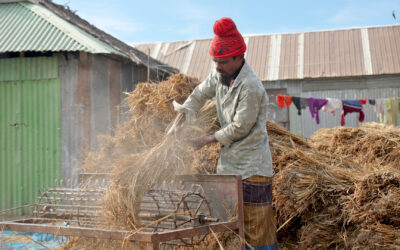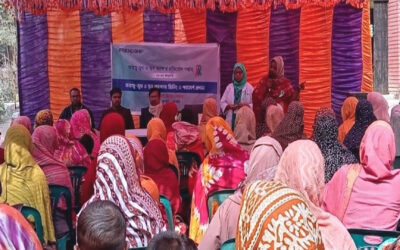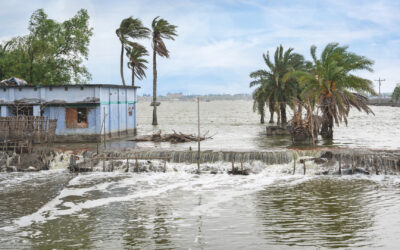An interview with boat carpenter, Bhojon Chondro Shutrodhar
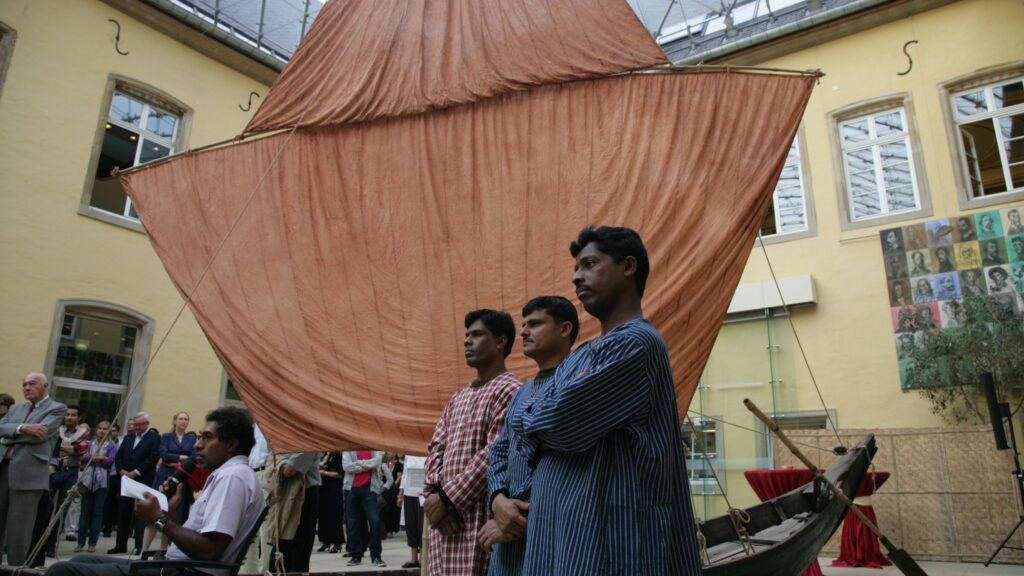
by Syed Abu Sinjan Saadat
June 9, 2024
In the heartland of Bangladesh, where rivers weave through the landscape like lifelines, a tradition as old as civilization is at risk of fading into obscurity. Boat-making, an art form passed down through generations, stands at a crossroads between tradition and modernity. To explore the intricate dynamics of this ancient craft and its contemporary challenges, we had the privilege of conversing with Bhojon Chondro Shutrodhar, a master carpenter whose hands have shaped the timeless vessels that navigate Bangladesh’s waterways.
Bhojon’s journey into the world of boat-making was not merely a career choice; it was a legacy inherited from his father, deeply rooted in the soil of Binatiya, Pabna. Reflecting on his formative years, Bhojon fondly recalls the riverbanks where his father’s team meticulously crafted boats with unparalleled skill and dedication. Drawing inspiration from this environment, he became an apprentice at the age of 15, under his father’s guidance. Through this apprenticeship, he discovered the artistry, rhythm, and harmony that define the craft of boat-making.
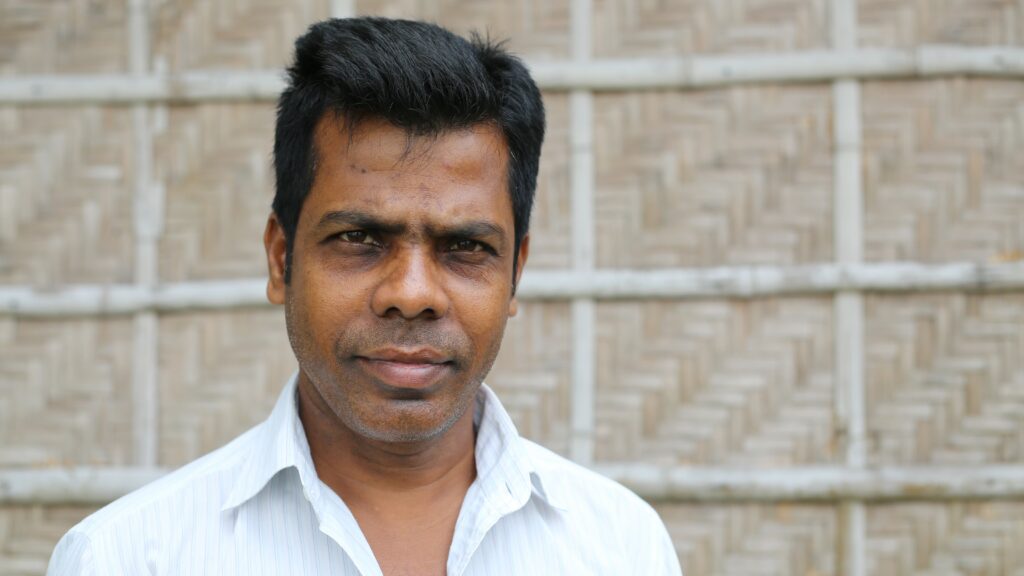
However, as Bhojon honed his skills, he witnessed the encroachment of modernity in the form of motor engines, gradually eroding the demand for traditional boats. “Motor engines had come into play,” he recalls with a tinge of sadness, “and I could see the slow decline of traditional boats.” In the face of this existential threat, Bhojon found himself primarily engaged in the maintenance and repair of existing vessels, as the need for new constructions dwindled.
It was amidst this uncertain landscape that Bhojon’s path crossed with Friendship, an organisation in part dedicated to preserving Bangladesh’s cultural heritage while offering tangible livelihood opportunities to artisans like him. Joining Friendship soon after, Bhojon became actively involved in the cultural preservation work of showcasing the heritage of traditional boats.
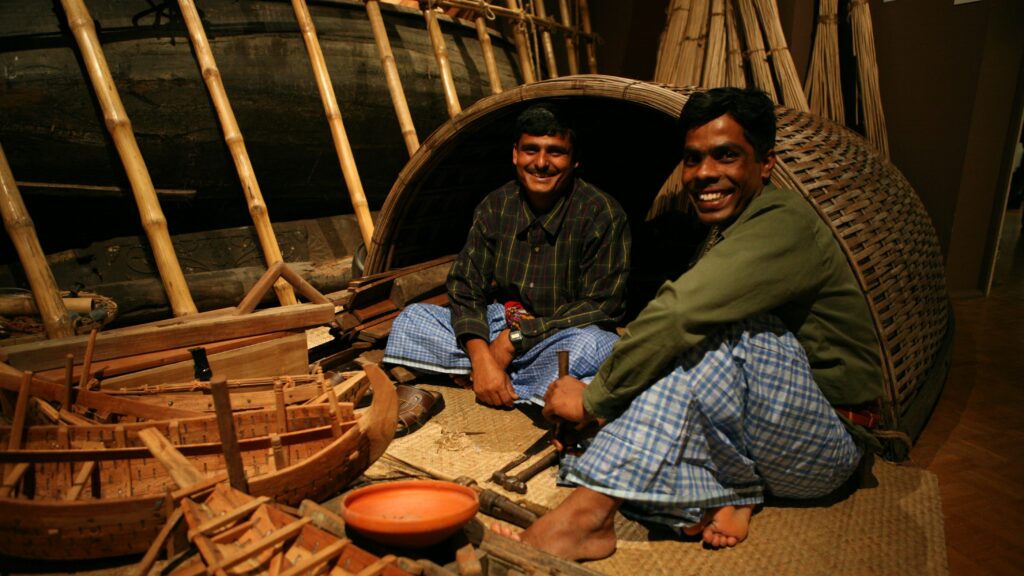
Through Friendship’s Cultural Preservation sector, Bhojon found a platform to not only exhibit his craftsmanship on a global stage but also to ensure the survival of a tradition deeply ingrained in the fabric of Bangladeshi society. Participating in exhibitions held in Luxembourg, France, and Japan, Bhojon collaborated on building a life-size 18 feet dinghy in Japan before a live audience. The opportunity to share his artistry with audiences far beyond his homeland filled the master boat maker with a sense of fulfillment and pride, reaffirming the timeless relevance of his craft.
However, beyond the cultural significance lies a poignant narrative of livelihood and poverty alleviation. Friendship’s intervention not only preserves tradition but also offers a lifeline to artisans grappling with economic uncertainty. By providing avenues for showcasing their skills, organising exhibitions, and crafting replica models, Friendship empowers artisans like Bhojon to earn a sustainable income while keeping the flame of tradition ablaze.
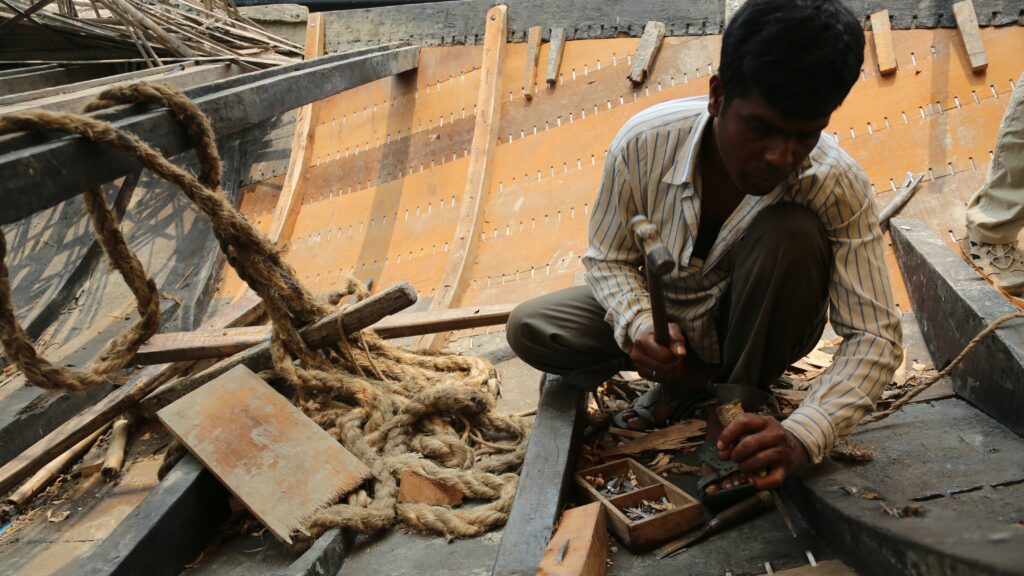
As Bhojon aptly puts it, “We’ll have to train up some people to keep this tradition alive. It’s not like we’ll be around forever, nor will my sons. However, we can pretty much make all the models now. That knowledge needs to be passed on.” Through initiatives championed by Friendship, the legacy of boat-making finds renewed vitality, ensuring that future generations inherit not just a tradition but a thriving livelihood rooted in centuries of craftsmanship.

